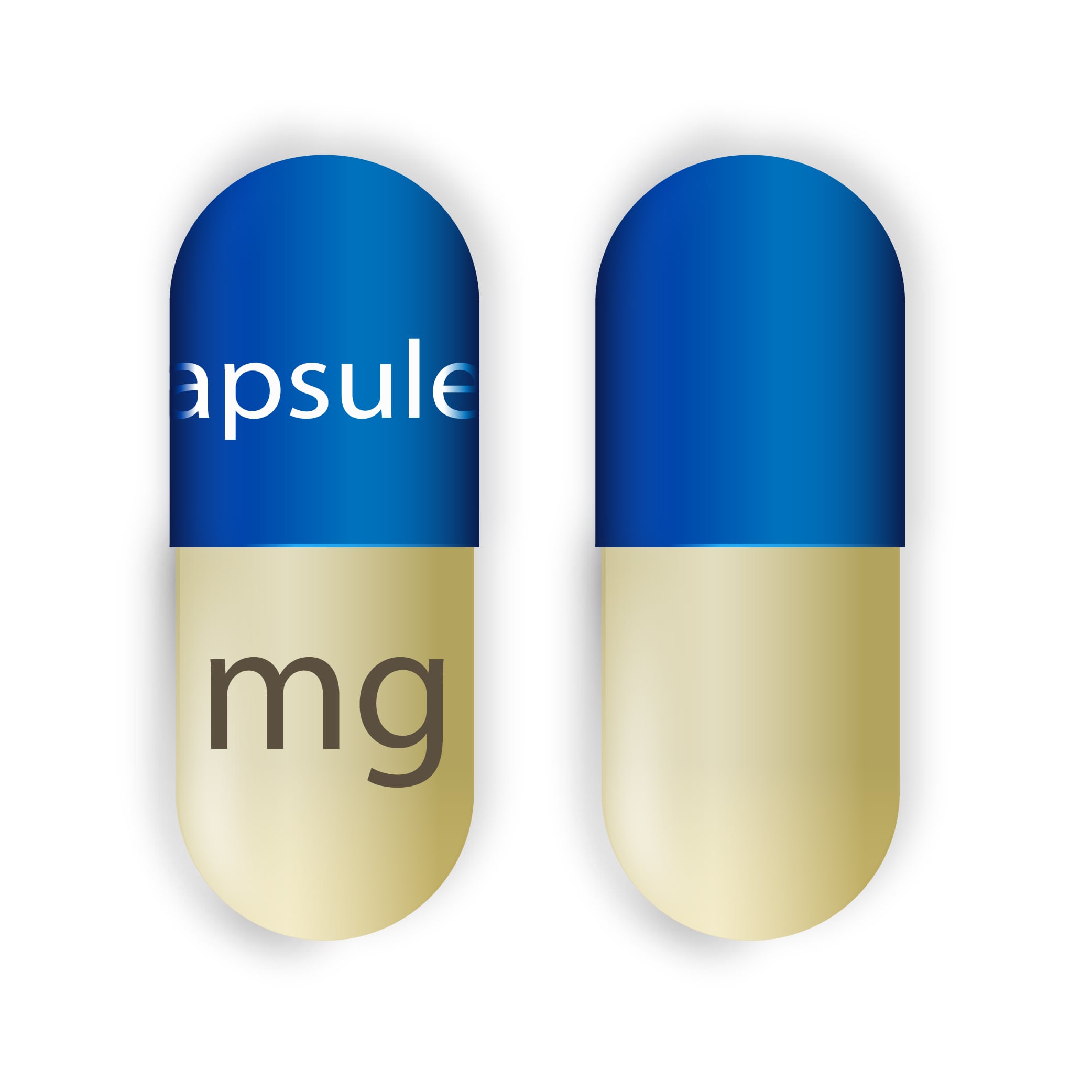Nilotinib
About Nilotinib
- Nilotinib, approved by the FDA on October 29, 2007, is an antineoplastic drug belonging to the class of tyrosine kinase inhibitors.
- It is indicated for the treatment of newly diagnosed Philadelphia chromosome-positive chronic myeloid leukemia (Ph+ CML) in the chronic phase in both adult and pediatric patients aged one year and older.
- Additionally, it is used for adult patients with chronic phase (CP) and accelerated phase (AP) Ph+ CML who are resistant to or intolerant to prior therapy with imatinib, as well as pediatric patients aged one year and older with Ph+ CML-CP and CML-AP resistant or intolerant to prior tyrosine-kinase inhibitor (TKI) therapy.
- Nilotinib functions by binding to and stabilizing the inactive conformation of the kinase domain of the Abl protein, inhibiting Bcr-Abl mediated proliferation of leukemic cell lines. It’s competitively inhibits cytochrome P450 (CYP) 3A4, CYP2C8, CYP2C9, and CYP2D6.
Strength:
Nilotinib capsules are available in strengths of 150 mg and, 200 mg.
Recommended Dosage:
Administer Nilotinib twice daily, approximately 12 hours apart, on an empty stomach. Patients should refrain from consuming food for at least 2 hours before and 1 hour after taking the dose. Advise swallowing the capsules whole with water. For those unable to swallow capsules, the contents may be dispersed in 1 teaspoon of applesauce and taken immediately, without storing for future use.
This medicine may be used in combination with hematopoietic growth factors like erythropoietin or G-CSF, and with hydroxyurea or anagrelide if clinically necessary. Your doctor will determine the appropriate dose and duration of treatment for you based on factors such as your age, body weight, and the severity of your condition.
- Adult Patients with Newly Diagnosed Ph+ CML-CP: Take 300 mg orally twice daily.
- Adult Patients with Resistant or Intolerant Ph+ CML-CP and CML-AP: Take 400 mg orally twice daily.
- Pediatric Patients with Newly Diagnosed Ph+ CML-CP or Resistant or Intolerant Ph+ CML-CP and CML-AP: Take 230 mg/m2 orally twice daily, rounded to the nearest 50 mg dose (up to a maximum single dose of 400 mg). Adjust dosage by combining different strengths of the capsules as needed. Treatment should continue until clinical benefit is observed or until unacceptable toxicity occurs.
Important:
Consider discontinuation of the medicine in specific patient groups, such as those with newly diagnosed Ph+ CML-CP or those resistant or intolerant to imatinib, who meet certain criteria including treatment duration, molecular response, transcript expression, and absence of prior relapse. Monitoring should include regular assessment of BCR-ABL transcript levels and CBC with differential after discontinuation.
Patients who lose major molecular response (MMR) or MR4.0 after discontinuation of the therapy should reinitiate treatment within 4 weeks at the previous dose level. For newly diagnosed patients or those resistant or intolerant to prior imatinib treatment, BCR-ABL transcript levels should be monitored monthly until a major molecular response is re-established, then every 12 weeks thereafter.
Warnings & Precaution:
- Nilotinib has been associated with prolonging the QT interval. Therefore, it is crucial to regularly monitor for hypokalemia or hypomagnesemia and address any deficiencies before administering the medicine and periodically throughout treatment.
- Additionally, baseline electrocardiograms (ECGs) should be obtained to assess the QTc interval before starting it, seven days after initiation, and regularly thereafter, especially after any dosage adjustments.
- Sudden deaths have been reported in patients taking this medicine, emphasizing the importance of avoiding its use in individuals with hypokalemia, hypomagnesemia, or long QT syndrome.
- To mitigate risks, it is advised to refrain from administering the medicine to patients with these conditions.
- Furthermore, caution should be exercised with concurrent use of medications known to prolong the QT interval and strong CYP3A4 inhibitors. Additionally, patients should avoid food for two hours before and one hour after taking the medicine to optimize its efficacy and safety profile.
- Throughout the treatment, it is imperative to maintain a vigilant watch and address potential adverse effects effectively.
- Monitoring myelosuppression involves regular checks of complete blood count (CBC), with intervention such as treatment interruption or dose adjustment if needed. Ensuring cardiovascular health requires ongoing assessment of cardiac status and proactive management of risk factors to prevent arterial vascular occlusive events.
- Surveillance of serum lipase levels aids in the early detection of pancreatitis, prompting dose interruption and diagnostic exploration in case of elevated levels accompanied by abdominal symptoms. Monthly hepatic function tests are essential to monitor for hepatotoxicity.
- Electrolyte imbalances, encompassing hypophosphatemia, hypokalemia, hyperkalemia, hypocalcemia, and hyponatremia, necessitate correction before the initiation and periodic monitoring thereafter.
- Prevention of tumor lysis syndrome entails maintaining hydration and adjusting uric acid levels appropriately. Patients should be educated on recognizing and reporting signs of bleeding, with prompt medical intervention if hemorrhage occurs.
- Vigilance for signs of fluid retention, such as rapid weight gain, swelling, and dyspnea, mandates medical management.
- Pediatric patients undergoing the treatment require close monitoring for potential growth inhibition.
- Women of childbearing age must be informed of the risks of embryo-fetal toxicity and instructed to employ effective contraception while on the therapy.
- Eligibility for treatment discontinuation should be determined based on typical BCR-ABL transcripts, utilizing an FDA-approved test with a sensitivity below MR4.5, and patients should undergo frequent monitoring with the same test to detect any potential loss of remission.
- Healthcare providers must be informed of all relevant medical conditions before initiating the therapy, including heart problems, previous strokes, irregular heartbeat, liver issues, pancreatitis, bleeding problems, history of total gastrectomy, pregnancy status, and lactose intolerance.
Common Nilotinib Side Effects:
- Nausea
- Rash
- Headache
- Fatigue
- Pruritus
- Vomiting
- Diarrhea
- Cough
- Constipation
- Arthralgia
- Nasopharyngitis
- Pyrexia
- Night sweats
- Thrombocytopenia
- Neutropenia
- Anemia
Use in Specific Population
- This medicine has the potential to cause harm to a fetus when administered to pregnant women, based on findings from animal studies and the drug’s mechanism of action.
- There is a lack of available data regarding the risk of Nilotinib-associated adverse effects in pregnant women.
- Additionally, there is no information on the presence of medicine or its metabolites in human milk, its effects on breastfed infants, or its impact on milk production.
- However, studies have shown that this medicine is present in the milk of lactating rats.
- Due to the potential for serious adverse reactions in breastfed infants, women are advised not to breastfeed during the treatment and for 14 days after the final dose.
- Females of reproductive potential should be counseled to use effective contraception during the therapy and for 14 days after discontinuation.
- Regarding infertility, the impact of the medicine on fertility in humans has not been studied.
- Animal studies in rats and rabbits did not show any effects on fertility in males or females.
- Safety and effectiveness have been demonstrated in pediatric patients aged one year and older with newly diagnosed or resistant/intolerant Ph+ chronic myeloid leukemia in the chronic phase.
- No significant safety differences were observed between patients aged 65 and older and those younger than 65.
- However, patients with a history of uncontrolled or significant cardiovascular disease, recent myocardial infarction, congestive heart failure, unstable angina, or clinically significant bradycardia were excluded from clinical trials.
- Caution should be exercised in patients with relevant cardiac disorders. Additionally, dosage should be reduced in patients with hepatic impairment, and close monitoring of the QT interval is recommended for these patients.
Storage and Handling
Store Nilotinib capsules within a temperature range of 20°C to 25°C (68°F to 77°F), with excursions allowed between 15°C and 30°C (59°F and 86°F). Properly dispose of any medication that has expired or is no longer required.
- 50 mg: Bottle of 120 capsules.
- 150 mg: Carton with 4 blister packs of (4×28) and Blisters of 28 capsules
- 200 mg: Carton with 4 blister packs of (4×28) and Blisters of 28 capsules
About Sansfro
Sansfro is committed to bridging the healthcare gap. Our purpose is to bring hope and healing to patients suffering from rare diseases by linking them with life-saving treatments through our Named Patient Program. Join us in our quest for a better and healthier world.
Know More...Alternate Indian Generic Brand
Tasigna
Knilota
other
FAQ'S
What is Nilotinib?
Nilotinib is a prescription medication that belongs to a class of drugs called tyrosine kinase inhibitors. It is used to treat certain types of leukemia, including chronic myeloid leukemia (CML) and Philadelphia chromosome-positive acute lymphoblastic leukemia (Ph+ ALL).
How does Nilotinib work?
Nilotinib works by inhibiting the activity of certain proteins called tyrosine kinases, which are involved in the growth and spread of cancer cells.
What are the common side effects of Nilotinib?
Common side effects of Nilotinib may include nausea, diarrhea, fatigue, headache, muscle pain, rash, and low blood cell counts.
Is Nilotinib safe to take during pregnancy or while breastfeeding?
Nilotinib should not be taken during pregnancy unless the potential benefits outweigh the risks. It may harm an unborn baby. It is also not recommended during breastfeeding as it may pass into breast milk and could harm a nursing infant. Consult your doctor for guidance.
How long will I need to take Nilotinib?
The duration of the treatment varies depending on individual factors and the specific condition being treated. Your doctor will guide the duration of treatment.
What should I do if I miss a dose of Nilotinib?
If you miss a dose of medicine, take it as soon as you remember. However, if it’s close to the time of your next dose, skip the missed dose and resume your regular dosing schedule. Do not double dose to catch up.
Are there any specific tests or monitoring required while taking Nilotinib?
Yes, regular monitoring of blood counts, liver function, and other parameters may be necessary while taking Nilotinib to monitor for any potential side effects or complications.
Can I drink alcohol while taking Nilotinib150 mg?
It’s generally recommended to avoid alcohol while taking Nilotinib 150, as it may increase the risk of certain side effects and may also interact with the medication.
How does Nilotinib differ from Tasigna?
Nilotinib, denoting the generic name, identifies the medication based on its chemical composition. On the other hand, Tasigna represents the branded version. Brand names, such as Tasigna, are commonly trademarked and safeguarded by intellectual property rights.
What is the Nilotinib price in India?
In India, Nilotinib 150 mg price can fluctuate depending on whether you opt for a branded generic or an authorized generic. Both authorized and branded generics serve as alternatives to innovator drugs, offering more cost-effective options compared to their brand-name equivalents. For a comprehensive list of available alternatives to Nilotinib in India, please contact Team Sansfro.
How can I buy Nilotinib online?
Individuals seeking to obtain the Nilotinib generic from India can initiate the process by submitting an inquiry through our website or contacting the Sansfro Health team directly. You can reach us at +91 9315705373 or email us at help@sansfro.com. Our services cover the provision of medications both within India and internationally.

Dr Anchal Aryan
Medical counselor
Patient Stories
Word Wide Delivery:
India, Andorra, Argentina, Australia, Austria, Azerbaijan, Bahrain, Brazil, Bulgaria, Cambodia, Canada, Chile, Colombia, Costa Rica, Croatia, Cyprus, Denmark, Dominican Republic, Estonia, Finland, France, Georgia, Germany, Ghana, Greece, Guatemala, Iraq, Ireland, Israel, Italy, Jamaica, Japan, Jordan, Kenya, Kuwait, Latvia, Lebanon, Libya, Lithuania, Malawi, Mexico, Montenegro, Nepal, Netherlands, New Zealand, Nigeria, Norway, Oman, Pakistan, Paraguay, Peru, Poland, Qatar, Romania, Saudi Arabia, Serbia, Singapore, Slovenia, Spain, Sri Lanka, Sweden, Switzerland, United Arab Emirates, United Kingdom, United States, Venezuela, Zimbabwe, Afghanistan, Albania, Algeria, American Samoa, Angola, Anguilla, Antarctica, etc.


